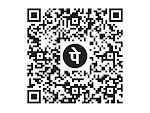**The Role of Self-Assessment in Career Counselling**
 |
| CareerBro |
**Abstract:**
Self-assessment serves as a cornerstone in the field of career counselling, offering individuals a structured process to explore their interests, values, and skills to make informed career decisions. This research-based article delves into the significance of self-assessment within the career counselling context, examining its role in facilitating career exploration, decision-making, and goal setting. Drawing upon empirical evidence and theoretical frameworks, the article explores various self-assessment methods, their effectiveness, and their integration into the counselling process. Additionally, it discusses the impact of self-assessment on client satisfaction, career success, and overall well-being, highlighting its importance as a foundational element in empowering individuals to navigate their career paths effectively.
**Introduction:**
Career counselling aims to assist individuals in making informed decisions about their career paths, taking into account their interests, values, skills, and aspirations. Central to this process is self-assessment, which involves introspection and exploration of one's personal attributes and preferences related to career choices. Self-assessment serves as a crucial starting point in the counselling journey, providing clients with insights into themselves and helping them identify potential career paths that align with their strengths and values. This article explores the role of self-assessment in career counselling, shedding light on its significance, methods, and impact based on empirical research and theoretical perspectives.
**The Significance of Self-Assessment in Career Counselling:**
Self-assessment serves multiple purposes within the realm of career counselling. Firstly, it helps individuals gain clarity about their interests, values, and skills, providing a foundation for career exploration. By understanding themselves better, clients can narrow down their options and focus on careers that resonate with their personal attributes and aspirations. Secondly, self-assessment fosters self-awareness and reflection, empowering individuals to make authentic career choices that align with their values and long-term goals. Moreover, self-assessment encourages active participation in the counselling process, as clients become more invested in exploring their career options and identifying suitable pathways for development.
**Methods of Self-Assessment:**
Numerous methods and tools are available for conducting self-assessment in career counselling. These include standardized assessments such as personality inventories (e.g., Myers-Briggs Type Indicator), interest inventories (e.g., Strong Interest Inventory), and skills assessments (e.g., Holland's RIASEC model). Additionally, qualitative approaches such as narrative exploration, reflective journaling, and guided self-reflection are utilized to delve deeper into clients' experiences, values, and aspirations. Each method offers unique insights into different aspects of the individual's personality, preferences, and strengths, contributing to a comprehensive understanding of their career-related needs and goals.
**Integration of Self-Assessment into the Counselling Process:**
Self-assessment is seamlessly integrated into the broader counselling process, serving as a foundation for subsequent stages such as career exploration, decision-making, and goal setting. Counsellors utilize self-assessment results to guide discussions, explore potential career options, and tailor interventions to meet the individual needs of their clients. Additionally, self-assessment findings inform the development of career action plans, which outline specific steps and strategies for achieving the client's career goals. Through ongoing reflection and feedback, clients refine their self-awareness and make progress towards their desired career outcomes.
**Impact of Self-Assessment on Career Outcomes:**
Empirical research has demonstrated the positive impact of self-assessment on various career outcomes, including career satisfaction, job performance, and retention. Studies have found that individuals who engage in self-assessment are more likely to make congruent career choices that align with their interests, values, and skills, leading to greater job satisfaction and engagement. Moreover, self-assessment enhances career decision-making by providing individuals with a clearer sense of direction and confidence in their abilities, reducing decisional conflict and uncertainty. Overall, self-assessment serves as a catalyst for career development and empowerment, empowering individuals to take ownership of their career paths and pursue meaningful work that aligns with their unique attributes and aspirations.
**Conclusion:**
In conclusion, self-assessment plays a pivotal role in career counselling, offering individuals a structured process to explore their interests, values, and skills and make informed career decisions. Through various methods and tools, self-assessment facilitates self-awareness, reflection, and exploration, empowering individuals to identify suitable career paths and pursue meaningful work. By integrating self-assessment into the counselling process, counsellors can support clients in achieving their career goals and enhancing their overall well-being. Moving forward, continued research and practice are needed to further refine self-assessment techniques and maximize their impact on career outcomes.
























0 Comments